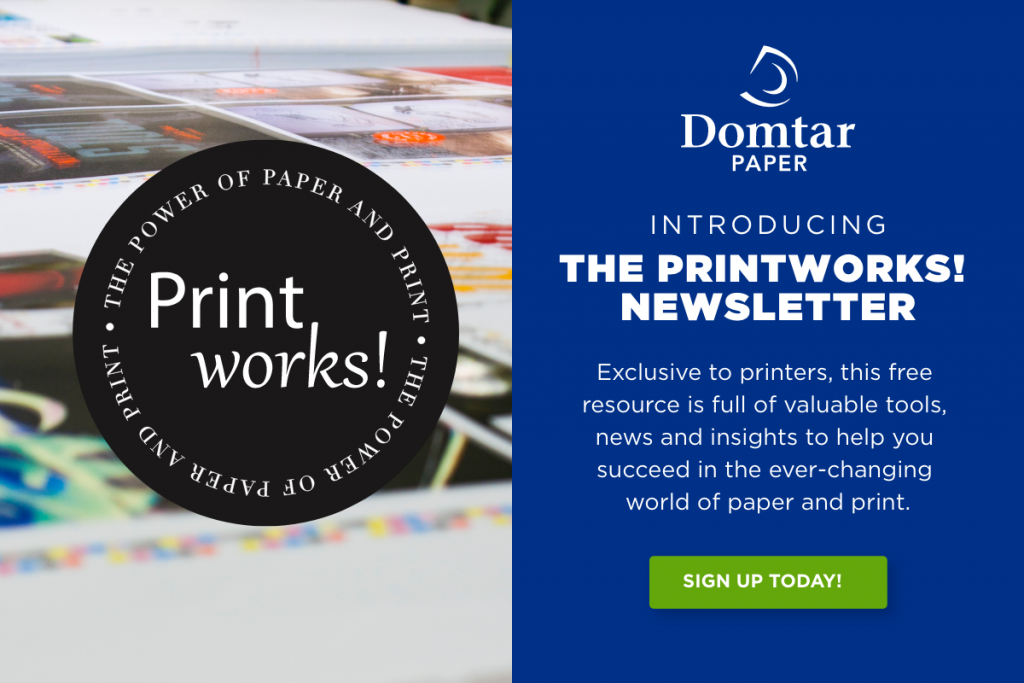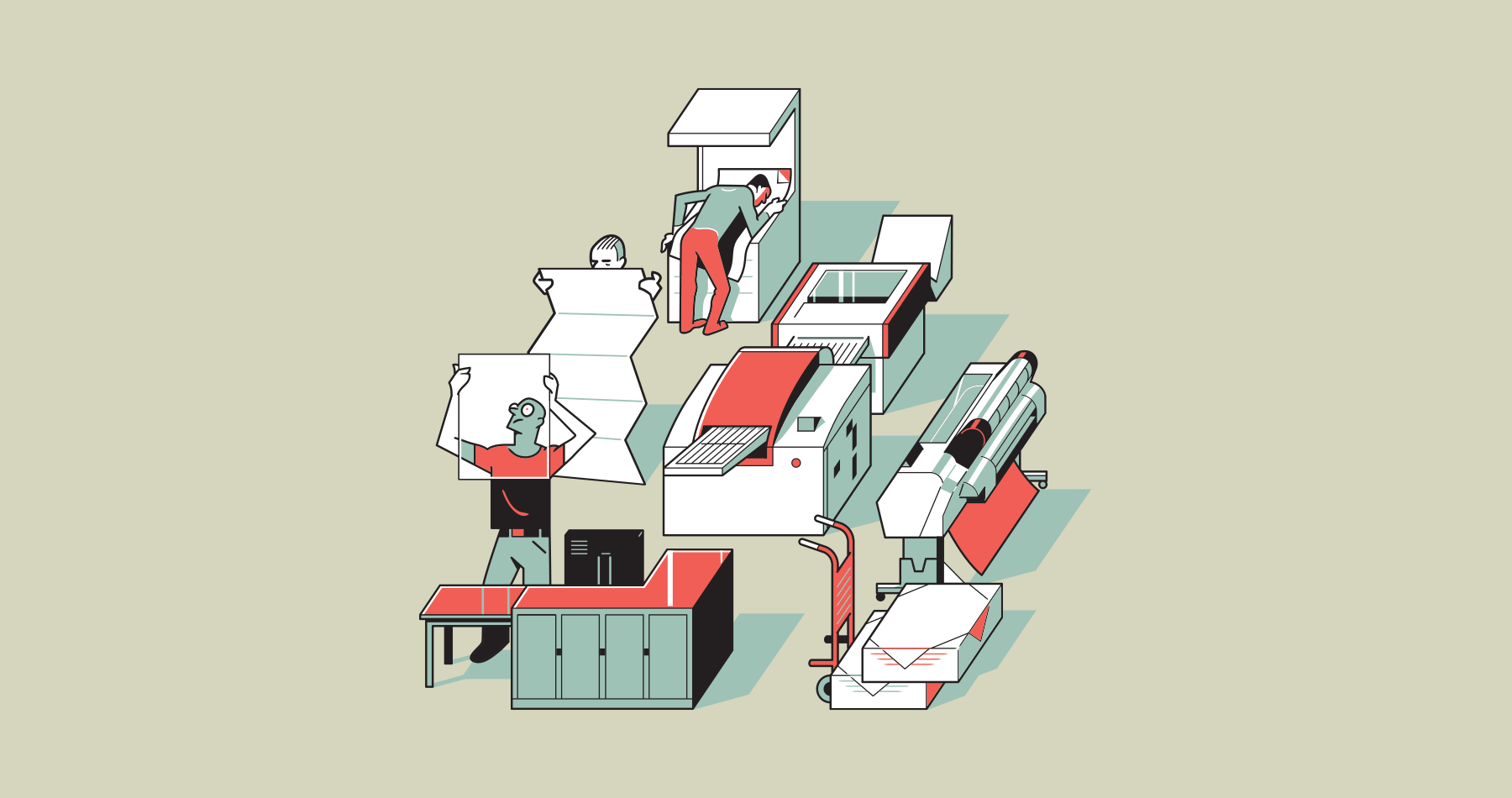Why it’s time to abandon tradition and redefine your value
In the first week of March 2020, O’Neil Printing was coming off of an exceptionally strong January and February. For the 100-plus year old company, it was business as usual. A printer dedicated to innovation and passionately engaging with its customers, the O’Neil team looked forward to embracing the slate of projects it had on the horizon.
And then it hit. Seemingly without warning, the world changed. Knocked off course by a pandemic that would stop everyone and everything in its path, O’Neil Printing, like every company across the globe, had to make sense of a landscape that came with no blueprint to follow.
Examining the carnage, Simon Beltran, a thought leader with more than 12 years of executive level leadership under his belt, not only admitted that the scene in front of him was unlike anything he had ever experienced, but that the road ahead seemed daunting. As O’Neil’s President and Chief Revenue Officer, it is his responsibility to oversee everything related to the technology and revenue generating machine, including sales, marketing, product, technology solutions and client experience. But even the veteran’s stops at 4over and Shutterfly Business Solutions couldn’t prepare him for this.
His teams are charged with the core goal of delivering exceptional value and an amazing user experience for clients across a full spectrum of technology driven solutions, excellence in print and fulfillment services, and marketing supply chain expertise. The change afoot demanded a new way of doing business—a new mindset that every single employee would have to buy into. “I will always be grateful for the leadership our teams exhibited in the face of great challenge and uncertainty,” Beltran recalls.

Acting soundly and efficiently, O’Neil started by putting the health and safety of its teams and clients first, above revenues and profits. Navigating the unprecedented months ahead, everyone communicated and made the necessary adjustments, sometimes on a daily basis. “Our commitment to each other and to the people we served allowed us to emerge at the end of the year focused, more efficient and poised for a successful 2021,” Beltran says.
The continuing lessons of the pandemic serve as a daily reminder that the world around us is ever-changing. And while it may be a cliché, companies—no matter what industry they play in—must adapt or die. The reminders of those that did not figure out the Business 101 lesson are enshrined in history for all to see: the Kodaks, Nokias, Blackberrys and AOLs, etc.
How important is it to let go of—at least reexamine—the processes and protocols that your company follows? According to Forbes, only 52 of the companies from its Fortune 500 list in 1955 remain on the list today. That’s 10%. That means 90% of those companies are either out of business or have fallen off the list of the most prosperous enterprises.
Renowned innovation strategist Susan Robertson says business owners all understand that they cannot control every factor impacting their businesses. Being nimble in the face of change is—and always has been—a critical business survival skill. So, where does the disconnect happen?
Robertson, a creative thinking expert with 20-plus years experience coaching Fortune 500 companies, cites two reasons that play with our entrepreneurial psyche: Negativity Bias and the Curse of Knowledge.
“Negativity Bias is one of these cognitive biases that gets in the way of new thinking,” says Robertson, who also is an instructor on applied creativity at Harvard Extension School of Professional Development. “It’s the phenomenon that negative experiences have a greater impact on our thoughts, feelings and behaviors than positive experiences. So, we are much more highly motivated to avoid negative than we are to seek out positive. The way this manifests in everyday life is the phrase, ‘Yes, but…,’ in response to new ideas.”
“Most companies that have disrupted industries have challenged some underlying assumption about that industry that most insiders would have never thought to question.”
— Susan Robertson, Instructor, Harvard Extension School of Professional Development
To negate this negativity bias, Robertson says you must respond to the “Yes but…” with “What if…?” This requires a dedicated and conscious mental effort by everyone on your team to monitor their own and the team’s response to new ideas. “Every time ‘Yes, but…’ is uttered, the response needs to be, ‘What if we could solve that?’ This reframing of the problem into a question will trigger our brains to look for solutions, instead of instantly rejecting the idea.”
The other cognitive bias, the Curse of Knowledge, gets in the way of letting go because of our subconscious assumption is that we have some sort of expertise on every subject. These assumptions limit thinking and suppress the ability to come up with new ideas. “Most companies that have disrupted industries have challenged some underlying assumption about that industry that most insiders would have never thought to question,” Robertson says. “To help curtail your own Curse of Knowledge, seek advisors who don’t have the same Curse of Knowledge you have. In other words, rely on advice from people outside of your industry.”

Question the questions
Heading into this year, companies like O’Neil Printing are not operating under the “a rising tide lifts all boats” playbook. Beltran says that while the tide may lift most, the economic challenges the industry faced will thin out the competition.
“A healthy balance sheet, a sound strategy and the personnel to execute will most certainly separate the boats,” he says.
That last part—people—is critical to a company’s ability to push past the ties that bind them. Beltran says that operating with wrong or disengaged employees can keep a company from growing and achieving its goals. “All of us need to have the managerial courage to inspire our best people and remove the ones that have stayed but ‘quit on us.’ It’s important to recognize that everyone knows who is holding the company back, as leaders we need to remove these human obstacles.”
Finding the strength and willpower to let go of the old ways of thinking is not only cathartic, but a highlighted bullet point on your to-do list. Companies that get too comfortable, and either don’t want to change or are afraid to, leave themselves in a precarious situation. If the past year has shown us anything, the “if-it-ain’t-broke-don’t-fix-it” mindset doesn’t leave much room for success.
“All of us need to have the managerial courage to inspire our best people and remove the ones that have stayed but ‘quit on us.’”
— Simon Beltran, President & Chief Revenue Officer, O’Neil Printing
“If we don’t emerge from the recent health and economic crisis as better leaders, spouses, parents, sons and daughters than before March 2020, than we truly have missed an inflection point in our lives,” Beltran says. “This has been an incredible reset for our communities, our country and our world at large. This change event should leave us grateful and self-aware of how quickly things can change and how little control we truly have.”
In a time of forced change, listen to the advice of that ancient Chinese Proverb: “A wise man adapts himself to circumstances, as water shapes itself to the vessel that contains it.”
Sometimes letting go is the best way to move forward.
Other recent articles

The Vanishing

Weighing In

We’re OK

The Guide

By The Numbers

